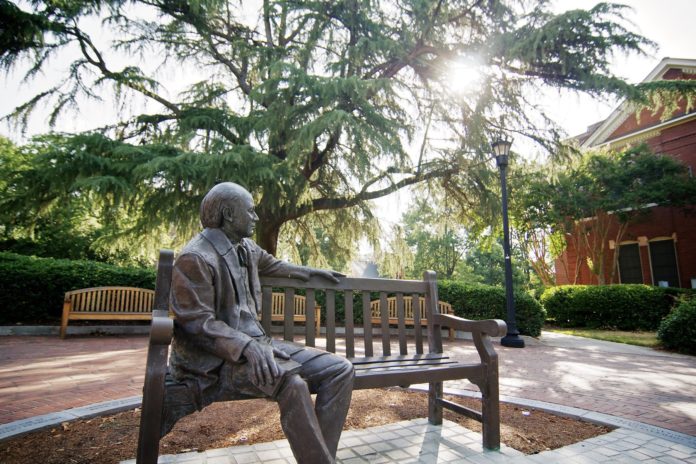(The following article was published Friday, May 18, 2007 in the Macon Telegraph.)
By Jennifer Burk
This summer Hali Thomas will spend three weeks camping in Kenya, providing mosquito nets to locals who need them to help prevent malaria.
“Malaria’s … a huge problem in Africa,” said Thomas, a Mercer University junior. “I just hope we can reach as many people and as many tribes as we can.”
Thomas is traveling to Kenya as a part of Mercer on Mission, a new program that combines traditional study abroad with service learning.
Three groups of 11 to 16 Mercer students and two faculty members will travel to either Lake Baringo, Kenya; Rio de Janeiro and Vitoria, Brazil; or Huehuetenango, Guatemala, for three weeks. One week before and after the trip will be spent in an academic classroom in Macon, learning about the countries to which they’re traveling. Classes start Monday.
“There are a lot of universities that do study abroad, and there are a lot of universities that do service projects abroad,” said university minister Craig McMahan, who is coordinating the program. “To my knowledge, we are one of the first universities to combine the two.”
Students pay tuition and fees for the program, but other expenses associated with the trip are covered by outside donors, McMahan said. Students earn academic credit for participating.
The students traveling to Kenya will stay in tents and are allowed to bring only one backpack with them as luggage. They have to get shots and take pills to prevent malaria while they’re there, Thomas said.
“It’s a really poor country, and I think we’re going to be privileged just to have tents over our heads,” she said.
In Guatemala, students will be staying at a hotel in a small village in the highland mountains, said JoAnna Watson, an anthropology professor going on the trip.
The village is almost exclusively made up of Mayan people, and students will work in an orphanage, she said. Students will conduct an American baseball camp for the older boys and a sewing lesson for the older girls. Younger children will participate in arts and crafts, she said.
The activities were chosen based on the students’ ability to show the children how to perform them, since none of the travelers speak the Mayan language.
“I’m hoping that we’ll have some kind of positive impact,” Watson said.
The students also may participate in an archaeological project during their time there. They have been asked to preserve a set of mammoth bones recently found by a farmer in the village, Watson said.
In Brazil, students will see the effects of urban poverty on the young.
They will visit two cities, Rio de Janeiro and Vitoria, where they will see urban poverty on a large and small scale.
Students will work with established Baptist missionaries in the area to teach English as a second language and provide art projects to children.
“The point is to provide some needed attention to these children in cities where they often don’t receive that attention,” said Eric Spears, director of international education at Mercer, who will go on the trip.
The trip also will place students, who overwhelmingly come from a middle class background, in situations with people who have much less than they do, he said.
“This is where the First World and the Third World come together,” he said.
To contact writer Jennifer Burk, call 744-4345.










